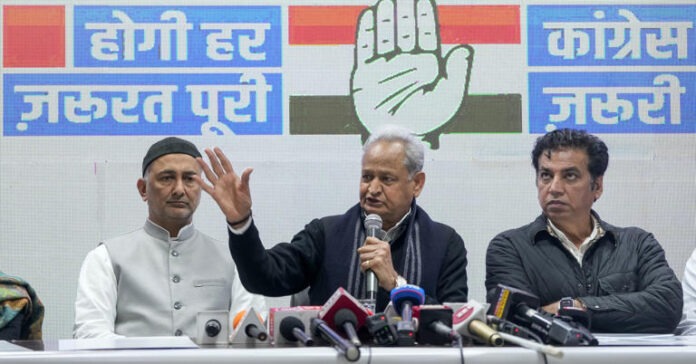New Delhi [India]: Congress MP Jairam Ramesh has declared that a prosperous Delhi requires the Congress party, emphasizing the newly announced Jeevan Raksha Yojana, a health insurance scheme slated to provide Rs 25 lakh health coverage per family. The announcement comes ahead of the Delhi Assembly elections scheduled for February 5.
In a social media post, Ramesh stated, “Milegi Swasth Suraksha, hogi har zaroorat puri, khush-haal Delhi ke liye Congress hai zaroori” (Will get health protection, every need will be fulfilled. For a prosperous Delhi, Congress is necessary).
Details of the Jeevan Raksha Yojana
The scheme was unveiled on January 8 by former Rajasthan Chief Minister Ashok Gehlot, who described it as a “game changer” for Delhi. Gehlot noted similarities between this plan and Rajasthan’s Chiranjeevi Yojana, a state health insurance program lauded for its inclusivity and benefits.
Key features of the Jeevan Raksha Yojana include:
- Health Insurance Coverage: Rs 25 lakh per family.
- Inspiration from Rajasthan: Designed to replicate the success of the Chiranjeevi Yojana, which offers universal coverage beyond the limitations of Ayushman Bharat.
Gehlot expressed confidence in the scheme’s impact, stating, “The health insurance scheme of Rajasthan has been very successful, and in Delhi, we will do the same. This provides benefits to all, unlike Ayushman Bharat, which has limitations.”
Political Reactions
Congress Optimism
Gehlot also voiced optimism about Congress’s prospects in Delhi, claiming the party’s campaign was gaining momentum, with the potential for significantly different results compared to previous years.
Criticism from BJP
The BJP criticized the announcement, questioning Congress’s credibility and intentions:
- Chhattisgarh CM Vishnu Deo Sai: “Congress has lost the trust of the people. They will not benefit in the polls.”
- Union Minister Harsh Malhotra: Queried why Congress failed to implement similar schemes in other states governed by the party.
Context and Electoral Landscape
The Congress, which governed Delhi for 15 years under Sheila Dikshit, has faced significant setbacks in the last two assembly elections. In 2020, the party failed to secure a single seat, while the Aam Aadmi Party (AAP) won 62 of the 70 seats, leaving the BJP with eight.
The Delhi Assembly polls will occur in a single phase on February 5, with votes counted on February 8.
As the campaign intensifies, the Congress hopes the Jeevan Raksha Yojana will resonate with voters and help it reclaim a foothold in the capital’s politics.


